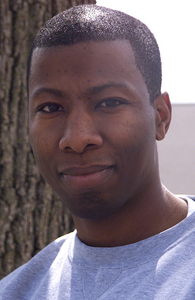

Tommy Bryant
Mary Shelley's Frankenstein is a masterpiece. Victor's quest for the ultimate power perfectly parallels Paradise Lost. In fact, I wrote a paper in my undergraduate British Literature class, comparing and contrasting Shelley's main character with Milton's Satan. So I had high expectations for Barter Theatre's adaptation of Shelley's novel. And therein lies the problem.
It is really difficult for any adaptation to meet expectations. Books have chapter after chapter to develop characters, build plot points, and articulate ideas. A film or play has only a certain amount of time to convey all of that material, and it is not easy. The best adaptation of a novel, in my opinion, would have to be Steven Spielberg's film based on Alice Walker's book, The Color Purple.
Taken on its own, without consideration for all that the novel brings to life, Barter's Frankenstein is a good play. It begins with the development of the modern Prometheus idea. Victor has attempted to possess a power he can hardly fathom, and Barter makes sure that idea hits home early.
One point that really doesn't work well for me is the scene where Victor's creature is brought to life. Victor's desire to create life consumes him, and it is his burden alone. When that burden is shared with Henry Clerval, Victor's oldest friend, it lessens the impact of Victor's endeavor. Just imagine if Hannibal Lecter had persuaded a friend to help him murder people and consume them. It not only makes the moment less powerful, it creates doubt about the severity of the evil deed. How bad can it be if other people can be pulled in so easily? And, if Henry is going to serve as a voice of reason for Victor, which he does later in the play, how can he assume this role if he is partially responsible for the creation of this monster?
From this point until near the end of the play, the story stays very close to the novel's master narrative. Victor believes the monster is dead, and he goes on about his life. But the monster is not dead and is, in fact, wondering why the man who created him holds no love, no emotional connection for him. Once his self-realization begins to grow, his reasons for hating Victor begin to increase in number as well. So the creature plots his revenge against Victor. But there's one issue that remains.
If Victor will make an Eve for his own Adam, this Adam will move away and never again concern himself with the affairs of man. But, in keeping with the novel's issue of concern, Victor fears that this pair will procreate and, being stronger than humans, they could soon become a race that would dominate humanity. So he does not allow the female beast to live, which sends the creature into a fit of rage.
Victor has a moment when he and his creation come to know each other, even though the creature has never had a reason to know forgiveness or compassion. The few brief moments of compassion a blind man showed him early in his development are dispersed by the strong tide of hatred exhibited by the blind man's family once the creature is discovered. At this point in the story, he should be an uncontrollable force of rage. Instead, he holds Victor gently in his arms and, despite having no wounds or suffering from any apparent illness, Victor dies.
This is a good play, but it falls short of bringing the Shelley novel to life in full form. The creature in the novel is passionate, even passionate about his hatred, but this adaptation tries to make the creature sympathetic, and perhaps that shouldn't be the case.
About the Writer: Thomas Bryant teaches at Virginia Highlands Community College in Abingdon. He has a BA in English from King College and a master's degree in Screenwriting & Film Studies from Hollins University. His play Thesis had a staged reading at the Burning Coal Theatre in Raleigh, N.C., and his Level to the Ground was selected for the Henri Edmonds' New Works Festival.